 Neurofeedback For Autism: Empirical Validation and Theoretical Framework (SKU: AG-P-042) Neurofeedback For Autism: Empirical Validation and Theoretical Framework (SKU: AG-P-042)
Futurehealth WinterBrain 20 minute presentation by Robert Coben.
This presentation will focus on empirical data and a theoretical framework from which to
understand Neurofeedback interventions for Autistic Spectrum Disorder. Our research
evaluated the efficacy of assessment (QEEG) -guided neurofeedback for children with Autistic Spectrum Disorder (ASD). Findings included a 92% success rate with a 41.57% reduction in Autistic symptoms, which was significantly different than a wait-list control group. Neurophysiological changes included increased metabolic flow to frontal cortices and movement towards normalized QEEG connectivity. A theoretical approach for treatment of ASD focusing on aspects of EEG connectivity will be presented. |
Autism, Neurofeedback, QEEG |
 Neurofeedback in Twilight Learning: Communicating with the Non-Dominant Hemisphere (SKU: AF-W2-018) Neurofeedback in Twilight Learning: Communicating with the Non-Dominant Hemisphere (SKU: AF-W2-018)
Futurehealth WinterBrain 2 hour workshop by Thomas Budzynski. |
Aging, Elderly, Neurofeedback |
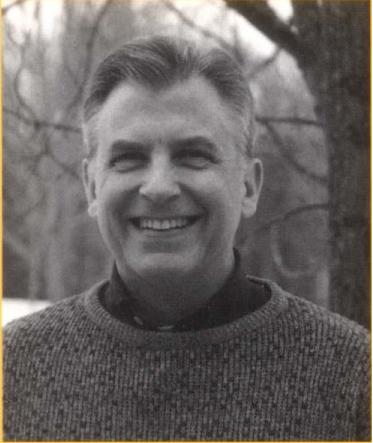 Neurofeedback Meets Neurology (SKU: AG-W2-084) Neurofeedback Meets Neurology (SKU: AG-W2-084)
Futurehealth WinterBrain 4 hour workshop by John Demos. The presentation will review functions associated with the temporal, parietal, occipital lobes as well as the cingulate gyrus, cerebellum and the sensorimotor cotex.
Symptoms can often be traced to specific regions of the brain. Neurotherapy protcols can be driven in part by an undertanding of neurology. This power point presentation will provide a rationale for therapy. |
Cingulate Gyrus, Executive Functions, Parietal Lobes |
 Neurofeedback Meets Wholistic Counseling (SKU: AG-P-082) Neurofeedback Meets Wholistic Counseling (SKU: AG-P-082)
Futurehealth Plenary Talk by John Demos
Neurofeedback is an effective tool for enhancing brain metabolism. However, many prospective clients present with physiological symptoms, family issues and poor life style habits. Effective screening at the intial intake explores life-style habits, family structure as well as physiological problems. |
Dysregulated Family, Life-style Habits, Wholistic Counseling |
 Neurofeedback Treatment of Dyslexia (SKU: AG-W2-097) Neurofeedback Treatment of Dyslexia (SKU: AG-W2-097)
Futurehealth WinterBrain Workshop by Gary Schummer.
The prevalence of dyslexia ranges from 5-17% of school-aged children, with 40% of the entire population reading below grade level (Shaywitz and Shaywitz, 1990). |
Dyslexia, Learning Disorders, Qeeg Coherence |
 Neurofeedback with Adolescents in The System (SKU: AG-P-176) Neurofeedback with Adolescents in The System (SKU: AG-P-176)
Futurehealth Plenary Talk George Martin
Recidivism rates for juvenile offenders in Minnesota have been between 61% and 75%. A pilot study was done at a Minnesota correctional institution. There those in the pilor study had a 45% recicivism rate.
Factors that may have interfered with greater success for this group and other youngsters involved in the Criminal Justice and social services system will be examined with suggestions for more effective intervention with this group pf clients. |
Corrections, Junveniles, Recidivism |
 Neurofeedback with Young Children (SKU: AH-W2-319) Neurofeedback with Young Children (SKU: AH-W2-319)
Futurehealth WinterBrain Workshop by Sue Othmer.
There has been some controversy within the neurofeedback community regarding the possibility of working with children under 6 or 7 years of age. Our clinical experience over the last 20 years is that even very young children are able to effectively engage with and benefit from neurofeedback. |
Brain Injury, Children, Developmental Delay |
 Neurophysics - A 21st Century Science of the Mind (SKU: AG-P-206) Neurophysics - A 21st Century Science of the Mind (SKU: AG-P-206)
Futurehealth Plenary Talk by Tom Collura
Neurophysics is a label applied to an interdisciplinary pursuit of an integrated understanding of the brain and mind. It incorporates a great deal of ?old? science, but it is a new science for the future. This talk will describe the emerging concepts and paradigms, and provide a perspective for viewing the developments which may be expected during the next century. Key aspects include information theory (?high-information? physics), self-organizing systems, multidimensional field potentials, and the breakdown of classical causality. |
Consciousness, Mind-body Connection, Physics |
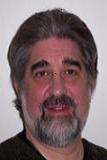 Neurophysics - a unified approach to brain and mind (SKU: AH-P-331) Neurophysics - a unified approach to brain and mind (SKU: AH-P-331)
Futurehealth Plenary Talk by Tom Collura
Neurophysics is a label applied to an interdisciplinary pursuit of an integrated understanding of the brain and mind. It incorporates a great deal of ?old? science, but it is a new science for the future. This talk will describe the emerging concepts and paradigms, and provide a perspective for viewing the developments which may be expected during the next century. Key aspects include information theory (?high-information? physics), self-organizing systems, multidimensional field potentials, and the breakdown of classical causality. |
Brain, Mind, Physics |
 Neurophysics of optimal and psi performance (SKU: AH-W2-332) Neurophysics of optimal and psi performance (SKU: AH-W2-332)
Futurehealth Workshop by Tom Collura
Neurophysics is an approach to brain and mind that incorporates concepts of energy, information, and causality. It is applicable to optimal performance and psi phenomena, as well as normal brain function. This workshop will explore specific EEG phenomena that are related to highly optimal functioning and psi phenomena (telepathy, clairvoyance, healing, etc.), as a means to detect and train these qualities using neurofeedback. |
Eeg, Optimal Performance, Psi Phenomena |
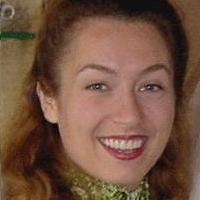 New Positive Psychology Results for BEHAVIOR MODIFICATION (SKU: AH-P-402) New Positive Psychology Results for BEHAVIOR MODIFICATION (SKU: AH-P-402)
Futurehealth Plenary Talk by Senia Maymin
People sometimes find themselves addicted to certain behaviors. And they have the resolve to change, but not the tools to change.
Now Positive Psychology highlights some tools to change behaviors. How can you modify behaviors for good? What are some tools and techniques? What tools and techniques will work for you? In what order can you combine the tools of positive psychology towards behavior modification?
In this talk, we will discuss self-regulation, the happiness-choice tradeoff, the Ben Franklin method, creating new trigger activities, lessons from goal theory and hope theory, and incremental successes. |
Behavior Modification, Change, Habits |
 NIGHTLIGHT TRAINING: Using Neurofeedback with the Dying (SKU: AG-P-100) NIGHTLIGHT TRAINING: Using Neurofeedback with the Dying (SKU: AG-P-100)
Futurehealth Plenary Talk by Thomas Brod
Neurofeedback is a valuable treatment adjunct for patients with catastophic and terminal illness. Within a soothing and contructive environment, neurofeedback is well-suited for dealing with pain and fear. the largest hurdle to it's more wide-spread use is therapist comfort with the dying individual. |
End-of-life, Neurofeedback, Suffering |
 NLP Writing Tools for Success (SKU: AF-W4-013) NLP Writing Tools for Success (SKU: AF-W4-013)
Futurehealth WinterBrain 4 hour workshop presentation by Thom Hartmann. |
Neurofeedback, Story |
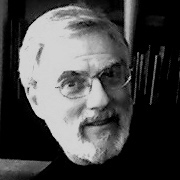 Non-Linear Dynamic Neurofeedback: Wrangling Information For the Brain-Computer Interchange (SKU: AG-P-099) Non-Linear Dynamic Neurofeedback: Wrangling Information For the Brain-Computer Interchange (SKU: AG-P-099)
Futurehealth Plenary Talk by Thomas Brod
We will consider cases of dramatic recovery with NeuroCare Pro and BrainPaint biofeedback to illustrate the general phenomenon of patient recovery when it appears on the surface that "nothing is happening." To go deeper, we will look at the "scientific" creation-myth of brain and self-regulation training. |
Creation Myth, Neurofeedback, Non-linear |
Operating the C2 for EEG, HRV, RSA and Peripheral biofeedback training (SKU: AE-W2-009)
Futurehealth Workshop by Jan Hoover |
Biofeedback Equipment, Equipment Tutorial, I-330 C2, Neurofeedback |
 Organic Storytelling (SKU: AH-P-358) Organic Storytelling (SKU: AH-P-358)
Futurehealth StoryCon 20 minute presentation by Karen Jacobs.
Great stories originate in the mind of the creator. By articulating remembered feelings the writer can engage the audience wiht authentic emotional resonance. |
Organic, Story, Story Consulting, StoryTelling, StoryTelling |
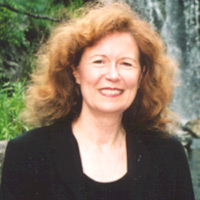 Oriental Medicine Made Incredibly Easy with the EMAS Device (SKU: AH-W2-122) Oriental Medicine Made Incredibly Easy with the EMAS Device (SKU: AH-W2-122)
Futurehealth Workshop by Beverly Rubik
We will demonstrate the state-of-the-art in electroacupuncture diagnostic/biofeedback devices, the EMAS (Electro-Meridian Analysis System; www.hepoch.com). No knowledge of acupuncture is required. Its software offers great insight into Oriental interpretations of a person?s condition as well as East-West combination treatment plans. The electrical conductivity at various hand and foot acupuncture points is measured to reveal the energy flow in the 12 meridians. Computer analysis then shows which acupuncture points need needling or acupressure according to different systems of acupuncture. Autonomic nervous system regulation is also indicated. Moreover, treatment using aromatherapy, herbs, foods, and self-massages, are shown. Demonstrations will be made on volunteer participants. |
Acupuncture, Bioelectricity, Biofeedback |










